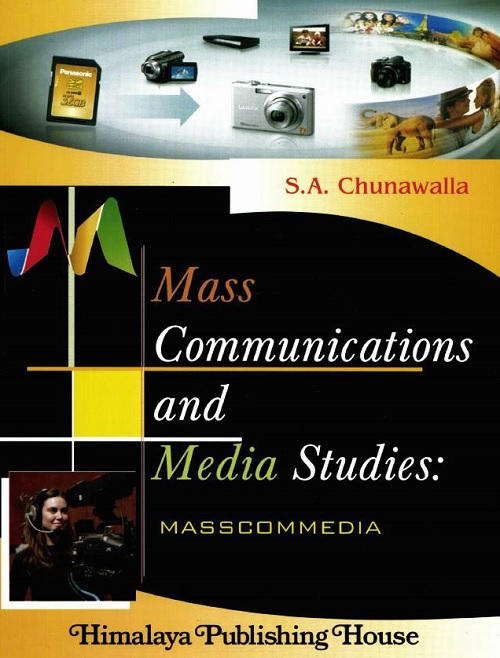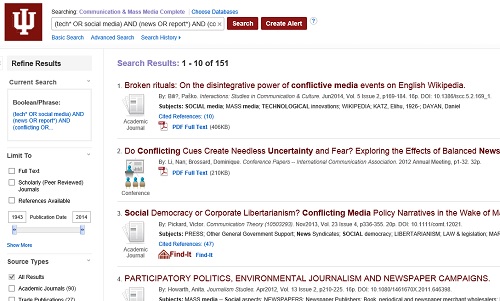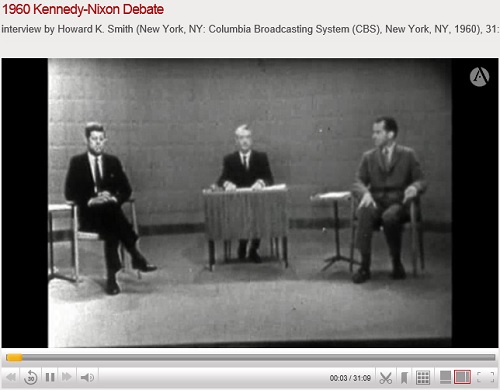This summer, we have been exploring in-depth research for each of IU East’s major fields of study, and this week we conclude with communications. The general techniques that we covered in the first week will serve you well here, too, but there is plenty more available.
For most research questions you might have, you will want to start with a general communications database. The best choices are Communication & Mass Media Complete or ProQuest Telecommunications, which are easy to use and offer a lot of full text. For e-book sources, try the Media Studies section of OxRef or eBrary. And if you are interested in a journalism perspective, Newspaper Source and ProQuest News and Newspapers are great choices (the latter even includes the Palladium-Item).
More communications databases can be found here. There is also significant overlap in fields like sociology and political science, as well, and the sources listed for those disciplines can inform research in communications.
So, if we were interested in a research topic like “Is a conflicting narrative a problem in news stories obtained as they develop through social media?” we might formulate a search like this:
Notice that we are searching for the three main concepts in our question, and looking for several different words for each concept, in case if an author uses a different term. This might look complicated, or like a waste of time. But setting up your search like this will usually make your research go quicker. Just typing ‘social media news conflict’ and hoping for the best won’t get you much of value, and you’ll have to spend a lot of time revising your search rather than choosing great results.
Beyond research databases, there are several other types of information that you might be interested in, too.
OPINIONS AND BELIEFS
Part of communications studies is making sense of dialogue, and understanding the persuasive arguments various participants use to make their cases. Why people believe what they believe can give you important information for avoiding manipulation and helping establish common ground for divided factions.
A good resource for this is Opposing Viewpoints in Context. This database includes information on major issues in the media, and does include some news and research content – but its main distinction are ‘viewpoint’ articles, clearly and articulately written by advocates for partisan positions. If you need to know the positions and beliefs of each side in a cultural conversation, this database will help you find them, and where dialogue has broken down.
MEDIA STUDIES
Communications has a significant interest in how the media is used and what messages are given priority. Beyond conventional research articles, you may want to examine past and emerging media to see how the news is packaged and conveyed. And since there are many ways to consume news media, there are many ways to look at it, as well. Newspapers are a waning but still important part of the news business. In addition to the newspaper databases listed above, we have several others as well, and include major papers like the New York Times. For television and film news coverage, you might try VAST, a streaming video database that contains almost 4000 newsreels (especially strong from World War II through the 1970’s).
With plenty of communications resources like these available to you, you’ll be able to launch right in to great research. But if you have any questions, please contact us at iueref@iue.edu!




